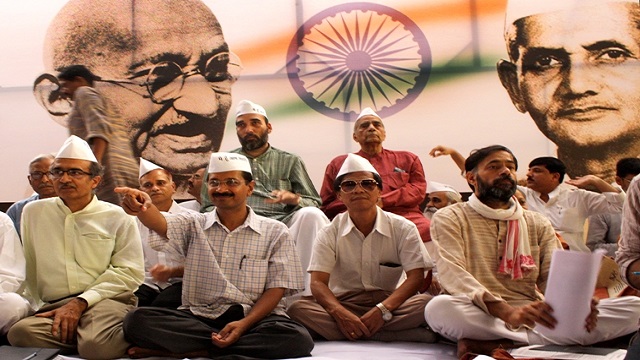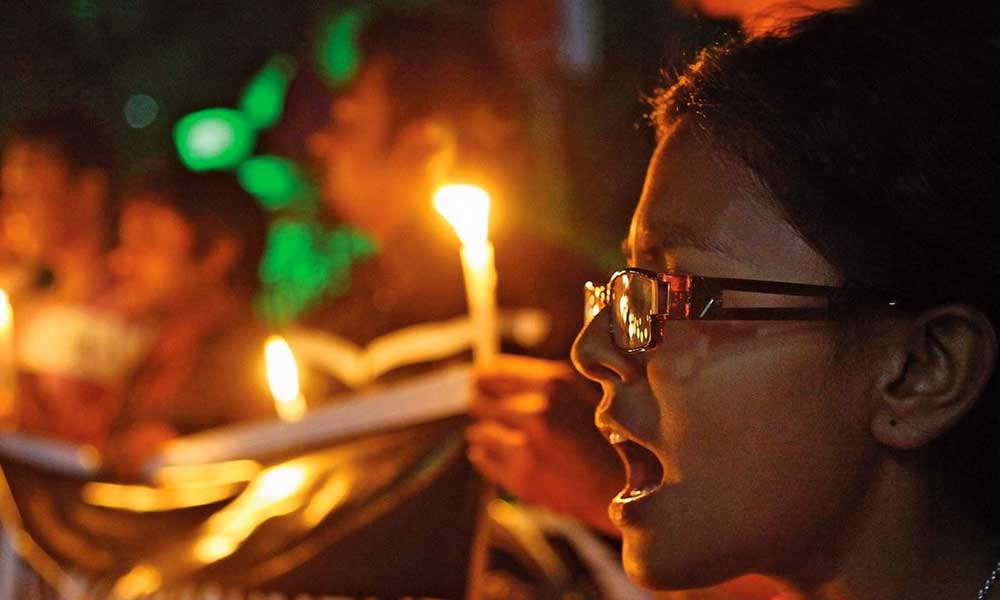This exercise should not remain confined to AAP but should cover other parties as well.
The Delhi High Court has directed the central government to go through the accounts of the Aam Aadmi Party (AAP) to ascertain the source of its funds, and check if there was violation of law in the receipt of funding.
The court’s direction came on a Public Interest Litigation (PIL) seeking registration of a criminal case against AAP leader Arvind Kejriwal and others for allegedly receiving foreign funds in violation of law.
An evaluation of the accounts of the civil society team led by Anna Hazare was done in 2012, and a report was filed before another bench of this court in January this year in a similar PIL filed by the petitioner earlier.
Taking the center’s report on record, the bench asked the counsel to go through the details of funds given by donors to AAP since its inception Nov 26, 2012. In case the government finds anything in violation of FCRA (Foreign Contribution Regulation Act, 2010), it may take action, or inform the court about the status.
The court has posted the matter for hearing on December 10.
It is indeed a positive development that funding of political parties is assuming greater importance in the national discourse on political reforms. That the judiciary is providing a supervisory oversight to the scrutiny of foreign funding of a political party – the AAP in this case – lends further credibility to the entire exercise, and adds a layer of assurance to the common man.
However, this exercise should not remain confined to the AAP. It is needless to say that the quantum of funds generated by AAP would be peanuts when compared to mainstream national political parties. That the funds of other parties – especially all six national parties – must be subjected to rigorous scrutiny is a very basic demand the common voter has.
Although the accounts of these parties are audited, yet more than 80% of these funds are reported to be below the denomination of INR 20,000. And that makes the entire exercise farcical. The common voter finds it really hard to digest that such a vast majority of funding of our parties comes from small sources and in small denominations.
Back-door corporate funding of parties is a common knowledge – and the clandestine nature of such funding definitely works to erode the trust that the voter ought to have in the parties competing to represent him.
Secondly, a proper scrutiny of all funding – and not only those received from abroad – is one of the preconditions to electoral cleansing. While more attention must definitely be directed towards funds that originate abroad, transparency in funds generated domestically must also be subjected to the same rigorous scrutiny, if not more.
Lastly, and perhaps most importantly, this entire exercise must originate in the legislature, and not be directed by the judiciary. In the recent weeks, the Supreme Court has been seen as a champion of political reforms, while the political parties have only been seen as trying to scuttle its efforts. The very foundation of political parties is their claim to represent the people.
But if the judiciary has to step in time and again to give voice to people’s concerns – especially in such matters which are clearly in the legislative domain – the trust deficit between the people and their representatives only widens. And that is not healthy either for federal distribution of powers, or for the entire democratic project at large.





